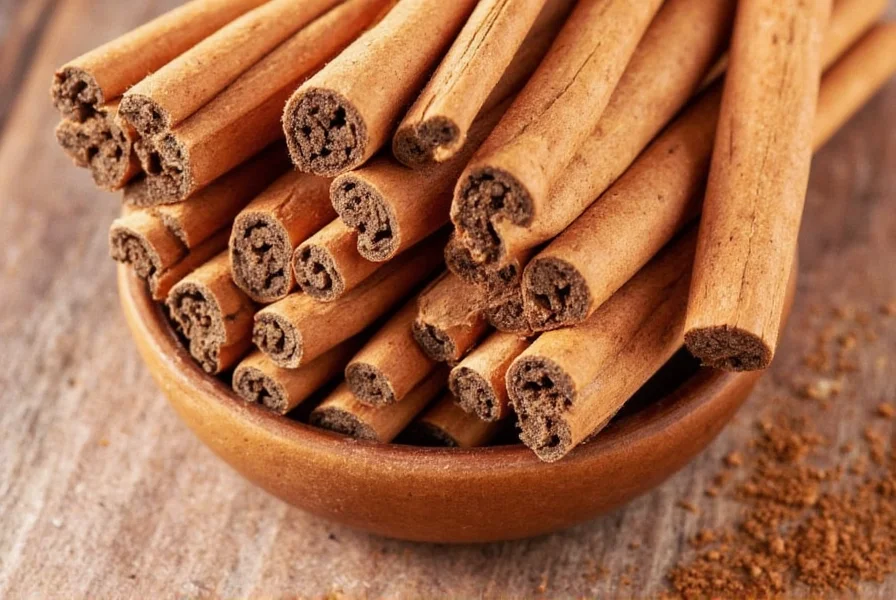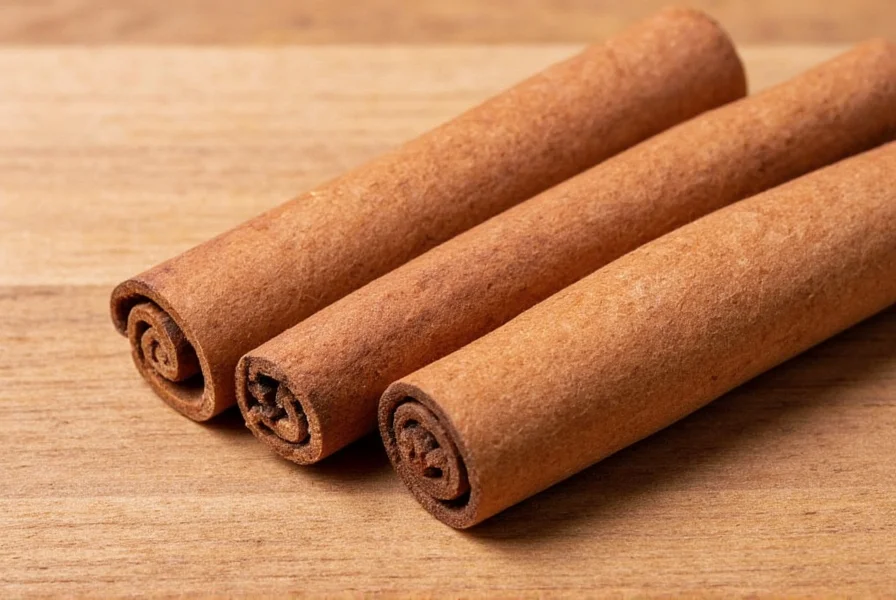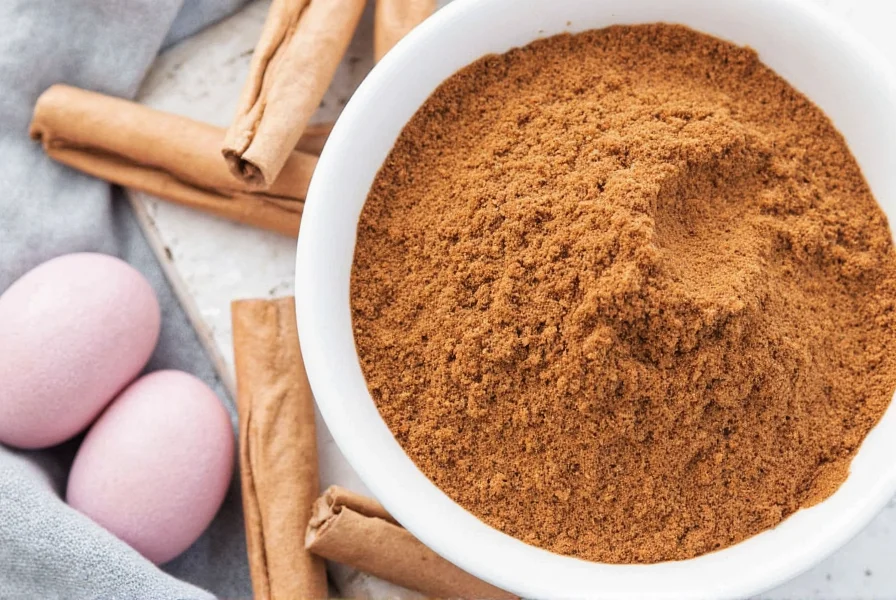For individuals managing gastroesophageal reflux disease (GERD), understanding how common spices affect symptoms is crucial for daily comfort. Cinnamon occupies a nuanced position in GERD dietary considerations—not as problematic as highly acidic citrus or caffeinated beverages, but not universally safe either. This comprehensive analysis examines the scientific evidence, practical considerations, and personalized approaches to incorporating cinnamon into a GERD-friendly diet.
Understanding GERD and Dietary Triggers
GERD occurs when stomach acid frequently flows back into the esophagus, causing irritation and discomfort. While medications help many patients, dietary modifications remain a cornerstone of effective management. Common triggers include:
| Common GERD Triggers | Typical Reaction | Alternative Options |
|---|---|---|
| Citrus fruits | Increased acidity | Melons, bananas |
| Caffeine | Relaxes lower esophageal sphincter | Herbal teas |
| Spicy foods | Esophageal irritation | Mild herbs like basil |
| Fatty foods | Slows gastric emptying | Lean protein sources |
Unlike these well-established triggers, cinnamon's impact on GERD lacks definitive research, creating confusion for many patients seeking natural remedies or flavor alternatives.
Cinnamon's Chemical Properties and GERD
Cinnamon contains several compounds that may influence GERD symptoms:
- Cinnamaldehyde (60-90% of essential oil) - May stimulate gastric acid secretion
- Eugenol - Has anti-inflammatory properties but may irritate sensitive tissue
- pH level - Approximately 5.5-6.5, making it mildly acidic
- Fiber content - May affect gastric emptying rates
These properties create a dual effect: potential benefits from anti-inflammatory compounds versus possible symptom exacerbation from acid stimulation. This explains why some GERD patients tolerate cinnamon well while others experience immediate symptom worsening.

Scientific Evidence on Cinnamon and Acid Reflux
Current research provides limited direct evidence about cinnamon's specific effects on GERD:
- A 2020 Journal of Gastroenterology review noted that while spices generally increase reflux symptoms, cinnamon showed less consistent effects than chili peppers or black pepper
- Animal studies suggest cinnamon extract may protect gastric mucosa, but human studies specific to GERD are lacking
- Clinical nutritionists report that approximately 40% of GERD patients in dietary counseling note symptom improvement when eliminating cinnamon
The absence of large-scale human trials means recommendations must be based on clinical observation and individual tolerance testing rather than definitive evidence—a crucial distinction for anyone researching natural remedies for GERD with cinnamon.
Practical Guidelines for GERD Patients
If you're considering adding cinnamon to your GERD-friendly diet, follow these evidence-based strategies:
- Start with Ceylon cinnamon - Often called "true cinnamon," it contains lower levels of coumarin and may be better tolerated than Cassia
- Begin with minimal amounts - Start with 1/8 teaspoon daily and monitor symptoms for 48 hours
- Avoid on an empty stomach - Consume cinnamon with other foods to buffer potential acid stimulation
- Track your response - Maintain a detailed food and symptom journal for at least two weeks
- Consider timing - Avoid cinnamon within 3 hours of bedtime when lying down can worsen reflux
Many patients find they can tolerate cinnamon in certain forms but not others. For example, using cinnamon in baking for GERD management may be better tolerated than adding it to hot beverages, which can increase its volatility and potential to irritate the esophagus.
When Cinnamon May Benefit GERD Management
Despite potential risks, cinnamon might offer benefits in specific GERD scenarios:
- As a sugar substitute - Replacing high-sugar sweeteners with cinnamon may reduce overall reflux triggers
- In combination with soothing foods - Adding small amounts to oatmeal or almond milk may create a GERD-friendly meal
- For blood sugar regulation - Better blood sugar control may indirectly improve GERD symptoms for some patients
These potential benefits must be weighed against individual tolerance. The key question isn't whether cinnamon causes GERD, but rather does cinnamon worsen my specific GERD symptoms—a determination only possible through careful self-monitoring.

Alternatives to Cinnamon for GERD Patients
If cinnamon proves problematic, consider these gentler flavor alternatives:
- Fennel seed - Known for digestive soothing properties
- Cardamom - Generally well-tolerated mild spice
- Vanilla extract - Provides sweetness without acidity
- Herbs like basil or oregano - Add flavor without triggering reflux
When exploring spice alternatives for GERD management, introduce one new option at a time to accurately assess tolerance. Remember that individual responses vary significantly—what works for one person may not work for another.
Consulting Healthcare Professionals
Before making significant dietary changes for GERD management, consult with:
- Your gastroenterologist to ensure dietary changes align with your overall treatment plan
- A registered dietitian specializing in gastrointestinal disorders
- Your primary care provider if you're taking medications that might interact with cinnamon
Professional guidance is especially important if you're considering using cinnamon as a natural remedy for acid reflux alongside conventional treatments. Never discontinue prescribed medications without consulting your healthcare provider.
Frequently Asked Questions
Is cinnamon good or bad for GERD?
Cinnamon's effect on GERD varies by individual. While not among the most common triggers, its potential to stimulate gastric acid means some GERD patients experience symptom worsening. Current evidence suggests Ceylon cinnamon in small amounts (1/4-1/2 teaspoon) is generally better tolerated than Cassia cinnamon, but individual responses differ significantly.
Can I use cinnamon if I have acid reflux?
Many GERD patients can tolerate small amounts of Ceylon cinnamon when consumed with food and not close to bedtime. Start with 1/8 teaspoon daily and monitor symptoms for 48 hours. If you experience heartburn, regurgitation, or other GERD symptoms within 2 hours of consumption, discontinue use. Always consult your healthcare provider before adding cinnamon to your GERD management plan.
What's the difference between Ceylon and Cassia cinnamon for GERD?
Ceylon cinnamon ("true cinnamon") generally contains lower levels of coumarin and may be better tolerated by GERD patients than Cassia cinnamon. Ceylon has a more delicate flavor and is less likely to cause irritation. Most clinical nutritionists recommend Ceylon for GERD patients interested in trying cinnamon, starting with minimal amounts (1/4 teaspoon or less) to assess tolerance.
How much cinnamon can I have with GERD?
If tolerated, most GERD specialists recommend limiting cinnamon to 1/4 to 1/2 teaspoon per day, preferably divided into smaller amounts consumed with meals. Never consume cinnamon on an empty stomach, and avoid taking it within 3 hours of bedtime. Always monitor your individual response and discontinue use if symptoms worsen.
Does cinnamon help heal the esophagus in GERD?
There is no conclusive scientific evidence that cinnamon heals esophageal damage from GERD. While some animal studies suggest cinnamon extract may have protective effects on gastric mucosa, human studies specific to esophageal healing in GERD patients are lacking. Relying on cinnamon alone for esophageal healing could delay effective treatment—always follow your healthcare provider's recommendations for managing GERD complications.











 浙公网安备
33010002000092号
浙公网安备
33010002000092号 浙B2-20120091-4
浙B2-20120091-4